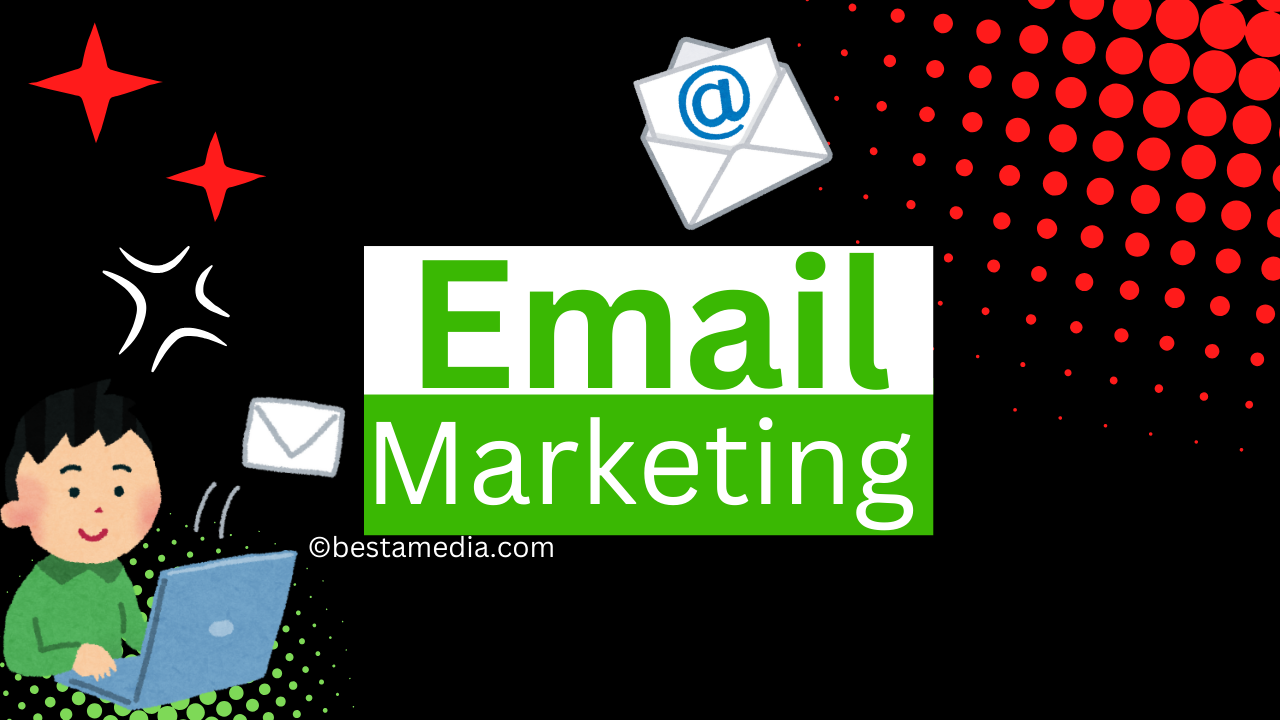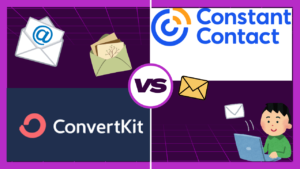Introduction
Email marketing is one of the most effective ways to connect with your audience and drive business growth. Despite its proven success, many still struggle to grasp its full potential and how it stands apart from similar strategies.
In this guide, we’ll explore the fundamentals of email marketing, uncovering what it truly involves and clarifying common misconceptions. We’ll get into into key strategies, best practices, and the unique benefits that make email marketing a powerful tool in your digital arsenal. With practical insights and expert advice, you’ll learn how to leverage email marketing to build stronger relationships with your audience and achieve your business goals.
What is Email Marketing?
Essentially, email marketing is about building and maintaining relationships with your audience. It enables you to stay connected with subscribers by sending personalized and relevant content that speaks to their needs and interests. This personalization fosters trust and helps keep your audience engaged over time. For instance, businesses often send regular newsletters filled with valuable insights, updates, or tips, ensuring their audience remains informed while nurturing a stronger connection with the brand.
Another key aspect of email marketing is promoting offers. By targeting subscribers who have already shown interest in your products or services, email becomes an effective channel to communicate special promotions, discounts, and exclusive offers. A well-timed promotional email about a limited-time sale or discount code can significantly boost sales while rewarding customer loyalty.
Newsletters are a popular way to keep audiences informed and engaged. Beyond promotional content, newsletters often provide tips, updates, and industry insights, all aimed at building brand loyalty. Monthly emails, for example, might share the latest industry news alongside company updates, ensuring that your business stays top-of-mind with subscribers.
Email marketing also plays a crucial role in lead nurturing. By sending targeted content that aligns with each stage of the customer journey, you can guide potential customers through the sales funnel. An example of this might be an automated email series that offers educational content to prospects who have expressed interest in your services. Over time, these emails work to build trust and move leads closer to making a purchase.
Lastly, email marketing is a powerful tool for customer retention. Keeping existing customers engaged through personalized emails, such as post-purchase follow-ups or loyalty rewards, encourages repeat business and strengthens the overall relationship with your brand. By consistently delivering value through tailored content, you can keep your customers coming back while deepening their connection to your brand.
What Email Marketing Is Not
Email marketing is often misunderstood, especially when it’s confused with spam. True email marketing is not about sending unsolicited, irrelevant emails to a broad audience. Spam, on the other hand, involves sending bulk emails to people who haven’t given consent to receive them, which can severely damage your brand’s reputation. Using randomly purchased email lists, where recipients never opted in, is a prime example of spam and should be avoided for whatever it is.
Effective email marketing is also not a one-size-fits-all approach. Sending generic messages to everyone on your list without considering their unique preferences will lead to disengagement. Instead, the key to successful email marketing lies in segmentation and personalization. By dividing your audience into smaller groups based on their behavior, interests, or demographics, you can tailor content that resonates with them. For example, personalizing emails based on subscriber actions—such as a follow-up email after they’ve browsed a specific product—can make your marketing far more relevant and impactful.
While email marketing does include sales-driven content, it’s not solely about pushing products. Focusing only on direct sales can alienate your audience over time. The most effective email campaigns strike a balance between promoting offers and providing valuable, engaging content. Educational material, helpful tips, or insights can complement promotional emails, allowing you to build trust and rapport with your audience. For instance, sharing useful industry tips in the same email that features a new product promotion ensures that you’re not just selling, but also offering value.
Related Concept: Direct Mail Marketing
Direct mail marketing shares some similarities with email marketing in terms of targeting and personalization. However, the key difference lies in the medium. While email marketing sends digital messages, direct mail involves sending physical promotional materials like postcards or catalogs to recipients. Though both can be highly targeted, email marketing is generally more cost-effective, offering greater ease of automation and tracking compared to physical mail campaigns.
email marketing tools can be categorized based on specific use cases, features, and target audiences. Below are the categories for the 70 tools:
1. General-Purpose Email Marketing Tools
These tools are widely used for various industries and offer easy-to-use interfaces, email campaigns, and basic automation:
- Mailchimp
- Constant Contact
- MailerLite
- AWeber
- Sendinblue
- Campaign Monitor
- Benchmark Email
- Moosend
- iContact
- Mailjet
- VerticalResponse
- EmailOctopus
- Zoho Campaigns
- GetResponse
- FreshMail
- Acumbamail
- Elastic Email
- Pepipost
2. Advanced Automation and CRM Integration
These tools are ideal for users who need sophisticated email automation, CRM integration, and workflows:
- HubSpot Email Marketing
- ActiveCampaign
- ConvertKit
- Keap (Infusionsoft)
- SharpSpring
- ONTRAPORT
- LeadSquared
- GreenRope
- BenchmarkONE (formerly Hatchbuck)
3. E-Commerce-Focused Email Tools
These platforms are specifically tailored for eCommerce businesses and offer deep integration with online stores, segmentation, and automation:
- Klaviyo
- Omnisend
- Drip
- Sendlane
- SmartMail
- Maropost
- Bronto (Oracle NetSuite)
- Bluecore
- Postmark
4. Enterprise-Level Email Marketing and Automation
These are designed for large-scale enterprises with advanced analytics, multi-channel marketing, and custom features:
- Pardot (Salesforce)
- dotdigital
- Adobe Campaign
- Iterable
- Vero
- MailUp
5. Transactional Email Platforms
These tools specialize in sending transactional emails such as order confirmations, password resets, and notifications:
- SendGrid
- Postmark
- Pepipost
- MoonMail
6. WordPress & Self-Hosted Email Tools
These tools are either WordPress plugins or self-hosted solutions:
- MailPoet (WordPress Plugin)
- Sendy (Self-hosted, Amazon SES-based)
- Mautic (Open-source, Self-hosted)
7. Multi-Channel Marketing Tools (Email, SMS, Web Push)
These platforms offer email marketing along with additional marketing channels like SMS, push notifications, or social media:
- SendPulse (Email, SMS, Web Push)
- SimplyCast (Multi-channel)
- MDirector (Email, SMS, Social Media)
- Routee (Email, SMS, Voice)
8. Niche and Specialized Platforms
These tools serve specific audiences or offer unique features, such as AI-powered optimization, personalized design, or focus on non-profits:
- Flodesk (Beautiful designs, user-friendly)
- Automizy (AI-powered to improve open rates)
- Customer.io (Behavior-based emails)
- Stripo.email (Advanced email design)
- Pinpointe (Mid-sized enterprises)
- ExpressPigeon (High deliverability, SMB focus)
- EngageBay (Affordable, all-in-one CRM & email)
- SmarterMail (Email server, offers marketing)
- Omatic MailChimp Integration (Nonprofit-focused integration)
9. GDPR and Compliance-Focused Tools
These tools prioritize compliance with international regulations like GDPR and have features for managing consent and user privacy:
- CleverReach
- Mailigen
10. Open-Source and Affordable Platforms
These tools are either open-source or offer affordable pricing, making them accessible to startups or small businesses:
- Mautic (Open-source)
- Sendy (Amazon SES-based, low-cost)
- Pabbly Email Marketing (Unlimited emails at a low price)
These categories help in selecting the right tool based on business needs, whether you need advanced automation, eCommerce support, or an affordable solution for startups.
In-Depth Discussion of Some of The Email Marketing Tools
ActiveCampaign
ActiveCampaign is a powerhouse in the email marketing world. While it doesn’t offer a free plan, it does provide a free trial for those eager to test its extensive capabilities. Starting at $29 per month, ActiveCampaign offers competitive pricing as you scale. For 1,000 subscribers, it’s $29, but as you grow to 100,000 subscribers, you’ll need to call for a quote. This tool is gaining traction rapidly due to its robust automation features, CRM capabilities, and SMS marketing options. Users rave about its high performance and advanced features, making it a top choice for those serious about marketing automation.
AWeber
If you’re looking for a tool with a free plan, AWeber could be your go-to. It doesn’t offer a free trial, but its free plan provides a solid entry point. With a starting price of $19 per month, AWeber is budget-friendly. For 1,000 subscribers, it’s $29, and for 25,000 subscribers, it climbs to $149. Known for its established market presence, AWeber provides basic automation, segmentation, and analytics. It’s a reliable choice with positive reviews, especially for those just starting out or needing fundamental features.
Campaign Monitor
Campaign Monitor stands out with its free plan but lacks a free trial. Pricing starts at just $9 per month, and it scales up as you grow. For 1,000 subscribers, it’s $29, and for 25,000 subscribers, it’s $179. This tool is well-regarded in the industry for its custom templates, automation, and analytics features. It has a strong market presence and positive user feedback, making it a versatile option for those needing tailored email marketing solutions.
Constant Contact
With a free trial available but no free plan, Constant Contact starts at $20 per month. For 1,000 subscribers, it’s $45, and for 25,000 subscribers, it’s $295. This tool is a staple in the email marketing space, known for its extensive range of tools, including social media and event management features. It’s well-regarded and has a strong market presence, making it a great choice if you need a comprehensive toolkit.
ConvertKit
ConvertKit offers both a free plan and a free trial, making it accessible for beginners and seasoned marketers alike. Starting at $29 per month, it’s priced at $29 for 1,000 subscribers and $199 for 25,000 subscribers. ConvertKit is popular among content creators due to its focus on tagging and sequences. With positive reviews and a strong user base, it’s a favorite for those who need content-focused automation and a user-friendly interface.
Drip
Drip provides a free trial but no free plan. It starts at $39 per month, and for 1,000 subscribers, it’s $39. As you scale up to 25,000 subscribers, the price reaches $289. Drip is growing in popularity, particularly among e-commerce businesses. It offers advanced automation and personalization features, which are highly praised in user reviews. If e-commerce is your focus, Drip might be worth exploring.
Flodesk
Flodesk is known for its flat-rate pricing of $19 per month. It doesn’t offer a free trial or free plan, but its simplicity and design-focused features are drawing attention. With a growing market presence and high ratings, Flodesk is ideal if you’re looking for a straightforward and visually appealing email marketing solution.
GetResponse
GetResponse has a free trial but no free plan. Starting at $15 per month, it’s quite affordable. For 1,000 subscribers, it’s $15, and for 25,000 subscribers, it’s $145. GetResponse is known for its automation, webinars, and landing page features. With a solid market share and favorable reviews, it’s a comprehensive choice for a wide range of email marketing needs.
Klaviyo
Klaviyo offers a free trial but no free plan. Starting at $20 per month, it’s priced at $30 for 1,000 subscribers and $375 for 25,000 subscribers. Klaviyo is highly regarded for its e-commerce integration and predictive analytics. It has a strong market presence and high user ratings, making it an excellent option if you’re focused on e-commerce and data-driven insights.
Mailchimp
Mailchimp offers both a free trial and a free plan, with prices starting at $9.99 per month. For 1,000 subscribers, it’s $51, and for 25,000 subscribers, it’s $230. As one of the largest players in the market, Mailchimp provides a comprehensive set of features, including automation and integrations. It’s well-reviewed and widely used, making it a versatile choice for various email marketing needs.
MailerLite
MailerLite stands out with its free plan and trial. It starts at $0 per month, with 1,000 subscribers costing nothing. For 25,000 subscribers, it’s $120. Popular for its simplicity and automation, MailerLite has high user reviews. It’s a great option if you’re looking for an affordable yet feature-rich tool.
Mailjet
Mailjet offers a free trial and plan, with pricing starting at $15 per month. For 1,000 subscribers, it’s $15, and for 25,000 subscribers, it’s $200. Known for real-time collaboration and API capabilities, Mailjet has favorable reviews and is suitable for teams needing collaborative features.
Moosend
Moosend has a free trial but no free plan. Starting at $8 per month, it’s priced at $8 for 1,000 subscribers and $100 for 25,000 subscribers. Moosend is growing in popularity due to its affordability and ease of use. It’s well-suited for those seeking a budget-friendly option with solid automation features.
Sendinblue
Sendinblue offers both a free plan and trial, with a starting price of $25 per month. For 1,000 subscribers, it’s $65, and for 25,000 subscribers, it’s also $65. Known for its email and SMS marketing features, as well as CRM and automation, Sendinblue has a growing market presence and positive user feedback.
These tools each bring something unique to the table, so your choice will depend on your specific needs, budget, and growth plans. Whether you’re looking for advanced automation, e-commerce features, or simple yet effective tools, there’s an option here that can meet your requirements.
Tabular summary of the email marketing tools as discussed
Conclusion
When done right, email marketing is a powerful tool for building relationships and driving business results. Understanding what it is—and what it is not—is crucial for creating successful campaigns. Focus on delivering personalized, value-driven content rather than mass, impersonal messages. By striking a balance between promotion and engagement, and by steering clear of practices that resemble spam, you can fully leverage email marketing to grow your business.
As you explore the best email marketing tools for your business, here are a few additional resources and expert tips to help you maximize your email marketing strategy:
- Email Marketing Best Practices: Understanding how to craft engaging subject lines, segment your audience, and time your campaigns is essential for success. Consider reading up on email marketing trends and the latest techniques for increasing open and click-through rates.
- Choosing the Right Tool for Your Needs: With so many tools to choose from, it’s important to align your choice with your specific business goals. Are you focusing on growing an e-commerce store? Consider tools like Drip or Klaviyo for their e-commerce automation features. Are you a content creator? ConvertKit might be your best bet. If budget is a concern, MailerLite or AWeber offer solid features without breaking the bank.
- Automation and Personalization: Automation can save you time, and personalization can dramatically increase engagement. Make sure the tool you choose excels in both areas. Tools like ActiveCampaign and Mailchimp stand out for their robust automation capabilities.
- Integrating Email with Your Other Tools: If you’re using a CRM or e-commerce platform, ensure your email marketing tool integrates seamlessly. For example, Sendinblue and Mailjet offer excellent CRM integration, while Klaviyo shines in its predictive analytics for e-commerce.
- Affiliate Marketing Potential: If you’re interested in affiliate marketing, some platforms provide specific features for tracking and optimizing these efforts. Flodesk is a great design-focused option if you’re looking for a simple tool to get started with a flat-rate pricing model.
- Analytics and Reporting: Don’t forget to consider tools that offer deep insights and analytics. Campaign Monitor and Moosend provide detailed reports that help you understand your campaigns’ performance and identify areas for improvement.
For more detailed insights into each tool, check out the other blogs on this site, where we dive deep into comparisons like Flodesk vs. MailerLite and ConvertKit vs. Constant Contact. These articles will help you make informed decisions based on your specific needs.
You may also like:
EITHER
How To Get Your Slice Before The Masses Catch On in e-Farming, The Most Exciting Opportunity Of The Decade With Igor Kheifets.

OR
Prime DeFi with a crazy 90-Day Action-Based Refund Guarantee. This year is shaping up to be an exciting year for Bitcoin and the entire Crypto market. Prime DeFi helps customers get in on the action! Their signature program, the Crypto Cashflow Collective will start students off with the basics of buying crypto and proper secure storage. Members will learn about the different types of exchanges, wallets, and how to pick the right coins to trade. With cryptocurrency markets about to take off, this is the perfect time to get involved and earn serious profits.
AND
Health and Wellness.The Most Important Thing That’s Probably Missing From Your Backyard. When it comes to our health, the immune system is king. A strong one might save you even if you’re very sick and have no medicines available. A weak immune system might not, even if you have all the best medicines and doctors by your side. There’s no better plant for taking care of your immune system than echinacea.
ALSO


















